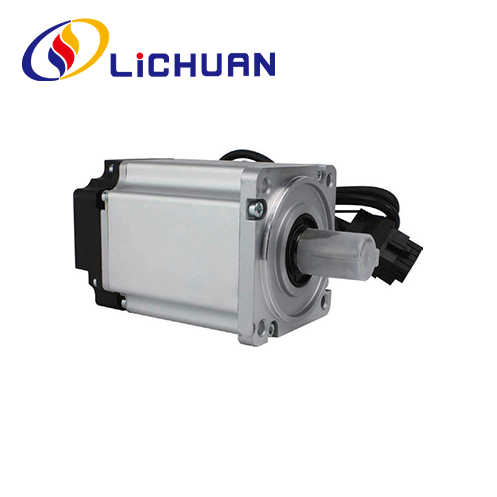How a AC servo motor differs from a DC servo motor
2024-01-03
AC (alternating current) servo motors and DC (direct current) servo motors are both used in industrial applications for precise control and positioning. However, they differ in their construction, operation, and control mechanisms:

1. Power Source:
- AC Servo Motors: These motors operate using AC power. They typically run on three-phase AC power systems and are compatible with AC voltage supplies.
- DC Servo Motors: These motors operate using DC power. They are powered by direct current and require a DC power supply.
2. Construction:
- AC Servo Motors: AC servo motors are synchronous motors that operate based on the frequency of the AC power supply. They consist of a stator and a rotor, and their speed and torque are controlled by adjusting the frequency and amplitude of the input AC voltage.
- DC Servo Motors: DC servo motors are typically brushed or brushless motors. They have a permanent magnet rotor and a wound or permanent magnet stator. The speed and torque of DC servo motors are controlled by varying the voltage applied to the motor.
3. Control Method:
- AC Servo Motors: Control of AC servo motors involves the use of complex algorithms and feedback systems to adjust the frequency and voltage of the AC power supplied to the motor. They often use encoders or resolvers to provide feedback for precise positioning and speed control.
- DC Servo Motors: DC servo motors offer relatively simpler control mechanisms. Speed and position control are achieved by varying the voltage supplied to the motor. Feedback devices such as encoders or tachometers are used for precise control and position feedback.
4. Speed and Torque Characteristics:
- AC Servo Motors: AC servo motors typically offer higher torque at lower speeds, making them suitable for applications requiring high torque at low velocities. They can also achieve high-speed operation with precise control.
- DC Servo Motors: DC servo motors generally offer better torque characteristics at higher speeds compared to AC servo motors. However, they might require additional maintenance due to the presence of brushes in brushed DC motors.
Both AC and DC servo motors have their advantages and are used in various industrial applications based on specific requirements such as speed range, torque, precision, and the nature of the control system employed. The choice between AC and DC servo motors depends on the application's needs, available power supply, control complexity, and desired performance characteristics.


